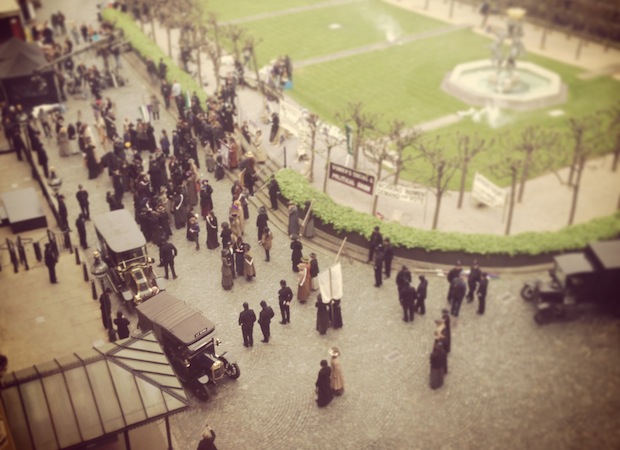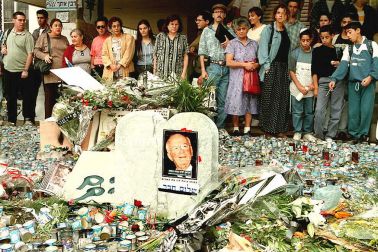It’s quite easy to grow quite used to the way things are, and only realise that they’re a bit odd when there’s a momentary shift. Today Parliament is packed with women, which is a bit of a shock to the system. They’re in New Palace Yard to film scenes from ‘Suffragette’, rather than as part of a new influx of female MPs or journalists. I have to admit that I often don’t notice how masculine this place is: you just get used to it and by and large Parliament is a very pleasant place to work indeed. It was only when a visiting female journalist remarked after the post-PMQs huddle this week that the discussion had been dominated by blokes asking about the gender balance of the new Cabinet that I realised how few women journalists had been present – and how many men. Only 22 per cent of MPs are women, and some research suggests that only 23 per cent of lobby journalists are women.

Ministers spend a great deal of time worrying about this (and in the lobby, we mostly assumed that this would lead to Maria Miller’s replacement as Culture Secretary being a woman and possibly a mother). But some of the things the government does to show that it is taking women’s rights seriously are as much about symbolism as they are about anything else. In my Telegraph column today, I try to work out what it is that the women’s minister actually does, and wonder whether it might be better to absorb the role back into government in general, rather than squirrel it away into a special job that has to cover a multitude of rather disparate issues.
Some MPs and hacks like to argue that more women in Parliament would somehow make it a nicer place. It would make it more balanced and representative, but as the late Clarissa Tan wrote in one of her magnificent TV reviews, women ‘can be as greedy and forceful and dangerous as any man’. But there is something rather poignant that a film about the campaign for the right to vote being set in a building that still contains so few women. Those suffragettes might realistically have hoped for a little more progress.







Comments